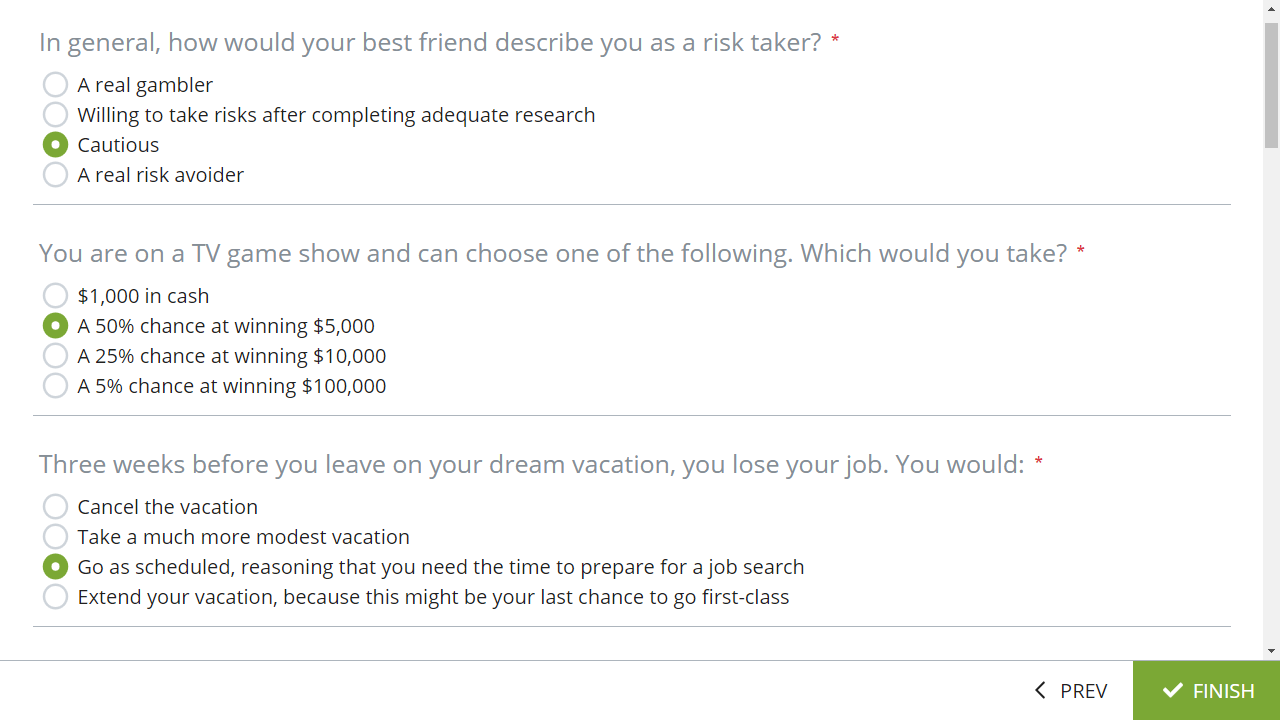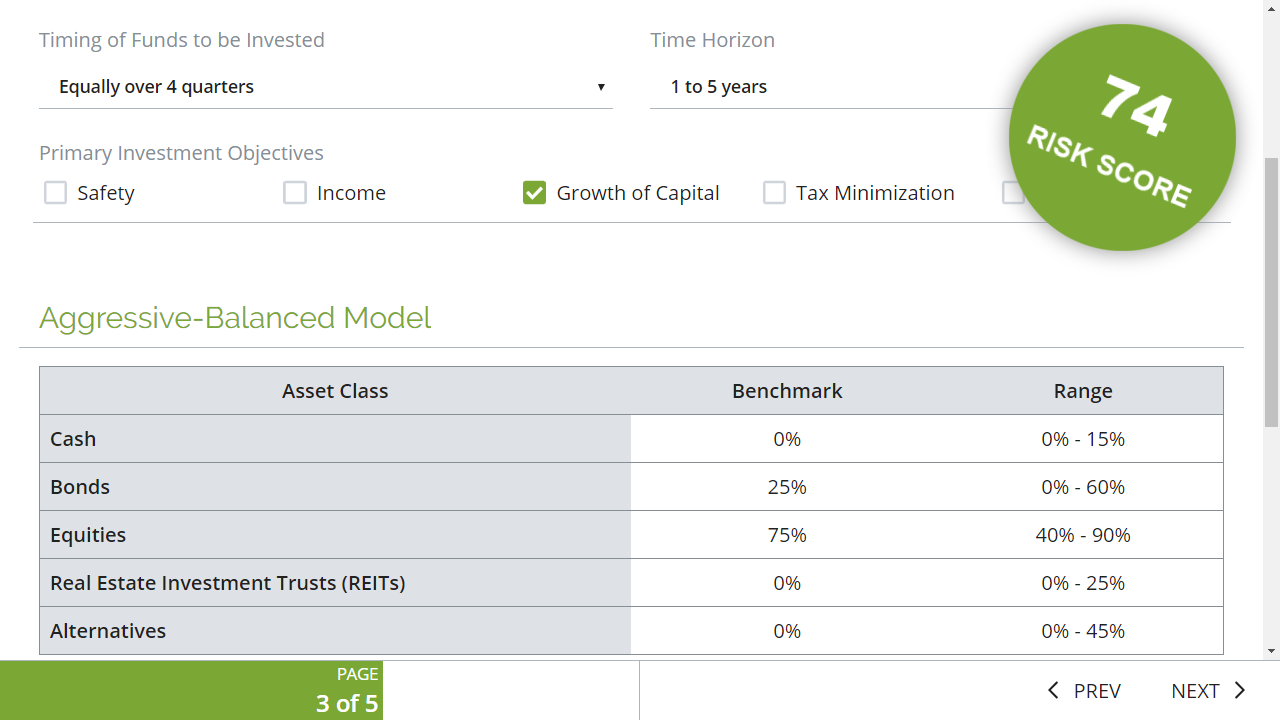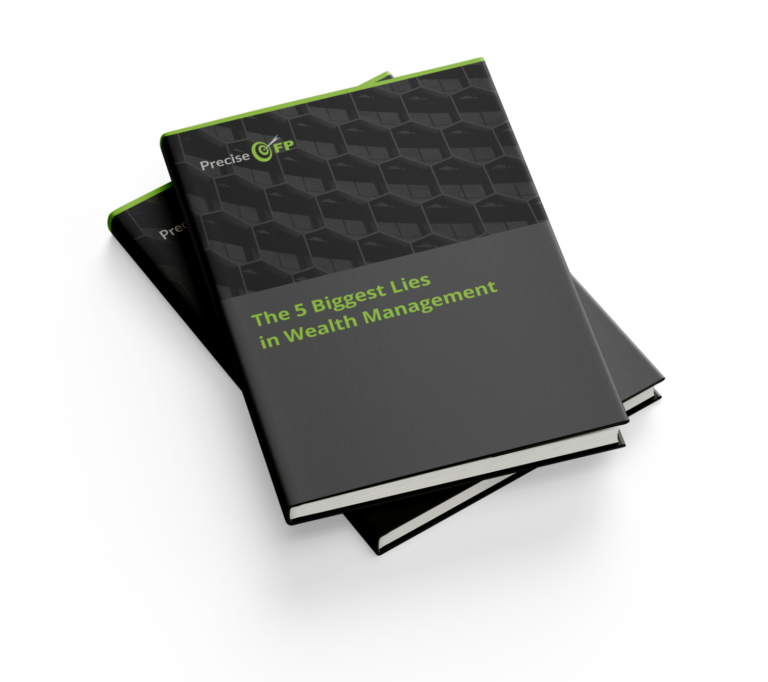Risk Tolerance
Scientifically-validated risk tolerance solution.

Definition
What is risk tolerance?
It’s a psychological aspect related to a person’s level of comfort in taking financial risk. It helps determine an investor’s willingness to lose some or all of an investment in exchange for greater potential returns.
Investors generally differ in the amount of risk they feel comfortable taking. While some people embrace risk, others may tend to avoid it at all cost.

Approach
13 questions to establish your client’s risk score
We provide a scientifically-validated risk tolerance questionnaire ready to be used out-of-the-box. Originally developed by Professors John Grable and Ruth Lytton, the questionnaire was published in Financial Services Review (FSR) and referenced in over a hundred research publications.
Since it’s creation, it has been successfully used to calculate the risk tolerance score of over 200,000 clients.

Results
From risk tolerance, to asset allocation, to investment policy statement
The questionnaire will be scored from 0 to 100, with 0 being the least comfortable taking financial risk and 100 the most comfortable. Use it to help you construct an appropriate asset allocation for your clients.
Once you’re done, we provide an Investment Policy Statement template that you can customize and send to your clients for e-signature.
